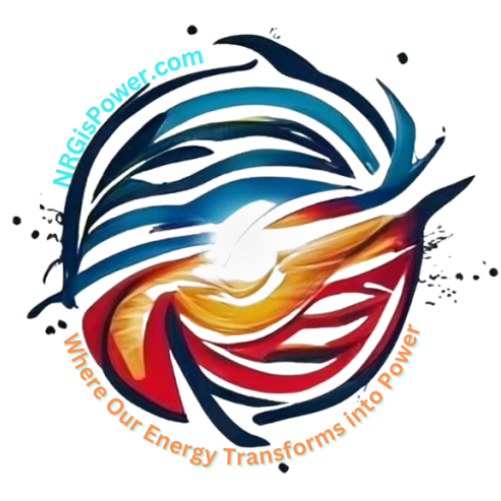Mastering Anxiety
Mastering Anxiety refers to the process of understanding, managing, and reducing the effects of anxiety in one’s life. Anxiety is a natural response to stress, but when it becomes overwhelming or chronic, it can negatively affect both mental and physical health. Mastering anxiety involves adopting strategies and techniques to cope with its symptoms, build resilience, and reduce its impact.
Key Elements of Mastering Anxiety:
Understanding Anxiety: To master anxiety, it’s important to first understand what it is and how it manifests. Anxiety is a feeling of worry, nervousness, or unease about something with an uncertain outcome. It can be triggered by stress, trauma, or negative thought patterns and may cause physical symptoms such as rapid heartbeat, sweating, and muscle tension.
Mindfulness and Meditation: Practices such as mindfulness meditation can help individuals stay present in the moment and reduce the tendency to ruminate on future worries. By focusing on the present, people can interrupt anxious thoughts before they spiral out of control.
- Mindfulness: Paying attention to the present moment without judgment helps you become more aware of anxiety triggers and allows you to respond thoughtfully instead of reacting impulsively.
- Breathing Techniques: Deep breathing exercises like diaphragmatic breathing (breathing deeply into the belly) or box breathing (inhale for 4 counts, hold for 4, exhale for 4) can activate the parasympathetic nervous system, which helps reduce the physical symptoms of anxiety.
Cognitive Behavioral Therapy (CBT): CBT is one of the most effective therapeutic approaches for managing anxiety. It helps individuals identify and challenge negative thought patterns that contribute to anxiety, replacing them with more balanced, realistic thinking. CBT often involves:
- Cognitive restructuring: Identifying irrational beliefs and replacing them with more rational ones.
- Exposure therapy: Gradually exposing yourself to feared situations to reduce the anxiety associated with them.
- Behavioral activation: Encouraging positive behaviors that reduce anxiety, such as exercising, journaling, or engaging in enjoyable activities.
Developing Healthy Coping Mechanisms: Mastering anxiety also involves adopting healthier ways to cope with stress and emotions. These could include:
- Exercise: Physical activity helps reduce the stress hormones that contribute to anxiety while releasing endorphins, which improve mood.
- Relaxation techniques: Activities such as yoga, tai chi, or progressive muscle relaxation can relax the body and mind, reducing anxiety symptoms.
- Creative outlets: Hobbies such as painting, writing, or listening to music can be effective in diverting focus away from anxious thoughts.
Building Resilience: Strengthening emotional resilience can help individuals face anxiety-inducing situations with a greater sense of confidence. This can be achieved by:
- Developing a strong support system: Surrounding yourself with family, friends, or support groups provides emotional comfort and shared experiences.
- Self-compassion: Being kind to yourself when you experience anxiety and acknowledging that it is a common human experience can reduce self-criticism and feelings of helplessness.
- Setting realistic goals: Setting small, manageable goals can create a sense of accomplishment and control, counteracting feelings of helplessness that anxiety often brings.
Limiting Triggers: Identifying and avoiding known triggers can help reduce anxiety. For example, if social situations or certain places increase anxiety, you might decide to gradually ease into these situations through exposure or by seeking support.
Lifestyle Changes: Making certain lifestyle changes can also help reduce anxiety over time:
- Sleep: Prioritizing good sleep hygiene is essential, as lack of sleep can worsen anxiety.
- Diet: Eating a balanced diet and avoiding excessive caffeine or sugar can help stabilize mood and energy levels.
- Routine: Establishing a consistent daily routine can provide structure and reduce uncertainty, which is often a cause of anxiety.
Common Techniques for Mastering Anxiety:
- Journaling: Writing down your thoughts, fears, and experiences can help you process anxiety and gain perspective on your emotions.
- Grounding exercises: Techniques like the 5-4-3-2-1 method (where you focus on five things you can see, four things you can touch, etc.) can help pull you out of an anxious state and bring your attention to the present moment.
- Visualization: Using guided imagery or visualization to imagine peaceful scenarios or to visualize yourself handling an anxiety-provoking situation calmly can reduce anticipatory anxiety.
When to Seek Professional Help:
Mastering anxiety is often an ongoing process, and for some individuals, it can become difficult to manage on their own. If anxiety is persistent, overwhelming, or interferes with daily life, it may be helpful to seek support from a mental health professional. Therapy (especially CBT), medications (such as SSRIs or benzodiazepines), or a combination of both may be recommended in more severe cases.
In Summary:
Mastering anxiety involves understanding its root causes, developing coping strategies, and practicing techniques like mindfulness, breathing exercises, and cognitive restructuring to reduce its impact on daily life. By focusing on relaxation, self-care, and emotional resilience, individuals can learn to manage anxiety more effectively and improve their overall mental health and well-being.

